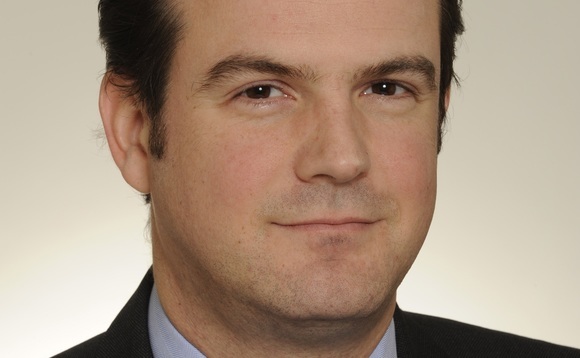
In Profile: 17Capital

Following the successful closing of 17Capital's third fund, Alice Murray catches up with the firm to explore its history, team, strategy and find out why it is fast-becoming the industry’s sweetheart.
At the start of the year, 17Capital announced the closing of its third fund on €500m, comfortably surpassing its target of €450m. Furthermore, the vehicle was raised in a just a few months, having been launched in Q3 2014. But the real testament to 17Capital's lure was the fund's impressive 95% re-up rate.
Strategy appeal
Investor appetite for 17Capital's latest fund was driven by several factors. The firm's strategy targets an under-served part of the market; providing preferred equity for institutional investors. 17Capital's offering enables LPs to release liquidity from their underlying private equity investments without selling onto the secondary market. "In most situations we are working with people that do not want to sell their holding but are looking for a liquidity solution," explains Pierre-Antoine de Selancy (pictured), managing partner and founder of 17Capital.
The key attraction for LPs is the ability to hold onto their equity upside, which would be lost if selling into the secondary market. To do this, 17Capital provides the LP with the cash needed, which is repaid by distributions from the private equity fund.
Once 17Capital has been repaid, the firm typically takes a minority share of the ongoing cashflows from the portfolio. 17Capital also provides financing to GPs if a fund has been fully called down but cash is needed to finance add-on acquisitions.
Says Patrick O'Dolan, investment manager at Connection Capital, an investor in 17Capital's latest fund: "We've always liked the risk/return profile of 17Capital and the team. We benchmarked the fund against its competition by looking at other secondaries funds. But this fund offers something really unique and differentiated."
Indeed, while there are currently a plethora of secondary funds out in the market chasing deals, as well as debt providers increasingly moving into vendor financing for secondary transactions, 17Capital's offering appears to be one of a kind. It sets itself apart from secondaries by co-investing alongside the LP and enabling it to retain future upside, and it differentiates itself from fund financing as neither LPs nor the fund are subject to debt constraints and repayments.
Furthermore, 17Capital's vehicles have a lifespan of just six years. And according to O'Dolan: "Although the investment is illiquid, the fund expects full returns by year six, which is very attractive to our private investor profile."
Deal tsunami
Another major attraction to this latest vehicle was 17Capital's bulging pipeline. "We focus a lot on dealflow. The way we source deals is similar to the secondary market at the end of the 1990s when there were no intermediaries. We have to find the sellers and often explain how we work," explains de Selancy. "We have country-by-country coverage; lots of on-the-ground work and marketing. We have put a lot of work into building a sourcing machine."
However, it was not always as plain sailing as it is today. When 17Capital first came to market (see "How it came to be", below), the team had not foreseen that its lack of track record would be an obstacle to overcome. In 2009, the team had been discussing a potential deal with a group that had an over-commitment problem - while 17Capital was able to accelerate liquidity on the group's co-investments without losing any upside, as well as providing cash to fund capital call downs, the group turned down the deal because it would have been 17Capital's first.
Fortunately, the team scored its debut deal in 2009 by providing €30m to Altamir Amboise, a listed private equity fund managed by Apax France.
Zombie danger
While the attractiveness of 17Capital's deals is clear, and risk appears diminished thanks to the way in which transactions are structured, there are dangers to the strategy. Providing financing to a vehicle that is fully drawn down means potentially dealing with - and help perpetuate - a zombie fund.
"The quality of the GP is our first priority, and then we look at the portfolio," says de Selancy. "We need to be careful that there will be exits. We have to be selective. We need to be sure that the GP has control over exits and that they are motivated to sell. We avoid situations where the GP holds the portfolio for too long, which could be a zombie situation."
How it came to be: spotting the gap
The origins of 17Capital clearly demonstrate founder Pierre-Antoine de Selancy's visual nature. While attending a conference in Zurich in 2006, watching the secondaries panel, de Selancy was struck by the polarity of the speakers. The panel comprised three secondary houses and one debt provider. By mentally comparing the panel to a typical buyout panel, where one would expect to see a few buyout houses, a debt provider and someone between them - typically a mezzanine provider, he literally spotted a gap in the market.
De Selancy approached old friend Augustine Duhamel, who has a background in structured finance. After discussing the idea it became clear that the pair would work together on this new venture.
The firm was up and running by 2008, having spent the first half of the year securing the legals and obtaining its FCA licence. The second half of the year was focused on fundraising. Despite securing an investor that would support a €25m first close, on 29 July 2008 the team insisted on holding a first close on €23m. According to de Selancy, this was the single best decision he has ever made - the storm clouds were gathering by this point and he believes that if 17Capital had waited any longer to hold the first close, it would not be in the market today.
Funds
Fund 1
Launched in 2008 and reached final close on €88m in September 2010.
An equal split of European and North American investors were said to have committed capital to the fund, which was anchored by Idinvest Partners and Alpha Associates. Other investors include Allianz Group, the Caisse des Depots et Consignations, CNP, BNP Paribas Private Equity and 17Capital itself.
Fund 2
Closed on €208m in June 2012, surpassing initial target.
17Capital drew on commitments from new and existing investors, including Allianz Group, the Caisse des Depots et Consignations, CNP and BNP Paribas Private Equity. New investors include insurers, pension funds and family offices from both Europe and the US.
Fund 3
Launched in Q3 2014 and reached final close on €500m in December of the same year, above its €450m target.
The vehicle received commitments from institutional investors including pension funds, insurance companies, sovereign wealth funds, university endowments and large family offices. The fund enjoyed a 95% re-up rate from existing investors. Commitments hailed predominantly from the UK, France and Canada. They were joined by a number of German investors. Private-client investment business Connection Capital participated in the fund, exceeding its original allocation due to the high level of demand from its own clients.
Team
Pierre-Antoine de Selancy, founder and managing partner
Before setting up 17Capital, de Selancy was a partner at Idinvest Partners (formally AGF Private Equity, part of Allianz), where he focused on secondary deals as well as primary fund investments and co-investments. Prior to Idinvest, he worked at Fondinvest Capital and Coller Capital. He began his career at PAI Partners.
Augustin Duhamel, co-founder and managing partner
Prior to setting up 17Capital, Duhamel was a director at Deloitte Finance, based in Paris, where he advised investors and management teams on distressed investments. Prior to that he was a manager at AT Kearney. Duhamel began his career at BNP Paribas in the structured finance team.
Robert de Corainville, partner
Before joining the firm in 2010, de Corainville worked at Merrill Lynch in the leveraged finance team. Previously, he held roles at Bank of Scotland, where he focused on portfolio management, restructuring and origination. He began his career in 2001 at Ashurst in Paris, advising on private equity deals.
Latest News
Stonehage Fleming raises USD 130m for largest fund to date, eyes 2024 programme
Sponsor acquired the public software group in July 2017 via the same-year vintage Partners Group Global Value 2017
Stonehage Fleming raises USD 130m for largest fund to date, eyes 2024 programme
Czech Republic-headquartered family office is targeting DACH and CEE region deals
Stonehage Fleming raises USD 130m for largest fund to date, eyes 2024 programme
Ex-Rocket Internet leader Bettina Curtze joins Swiss VC firm as partner and CFO
Stonehage Fleming raises USD 130m for largest fund to date, eyes 2024 programme
Estonia-registered VC could bolster LP base with fresh capital from funds-of-funds or pension funds









